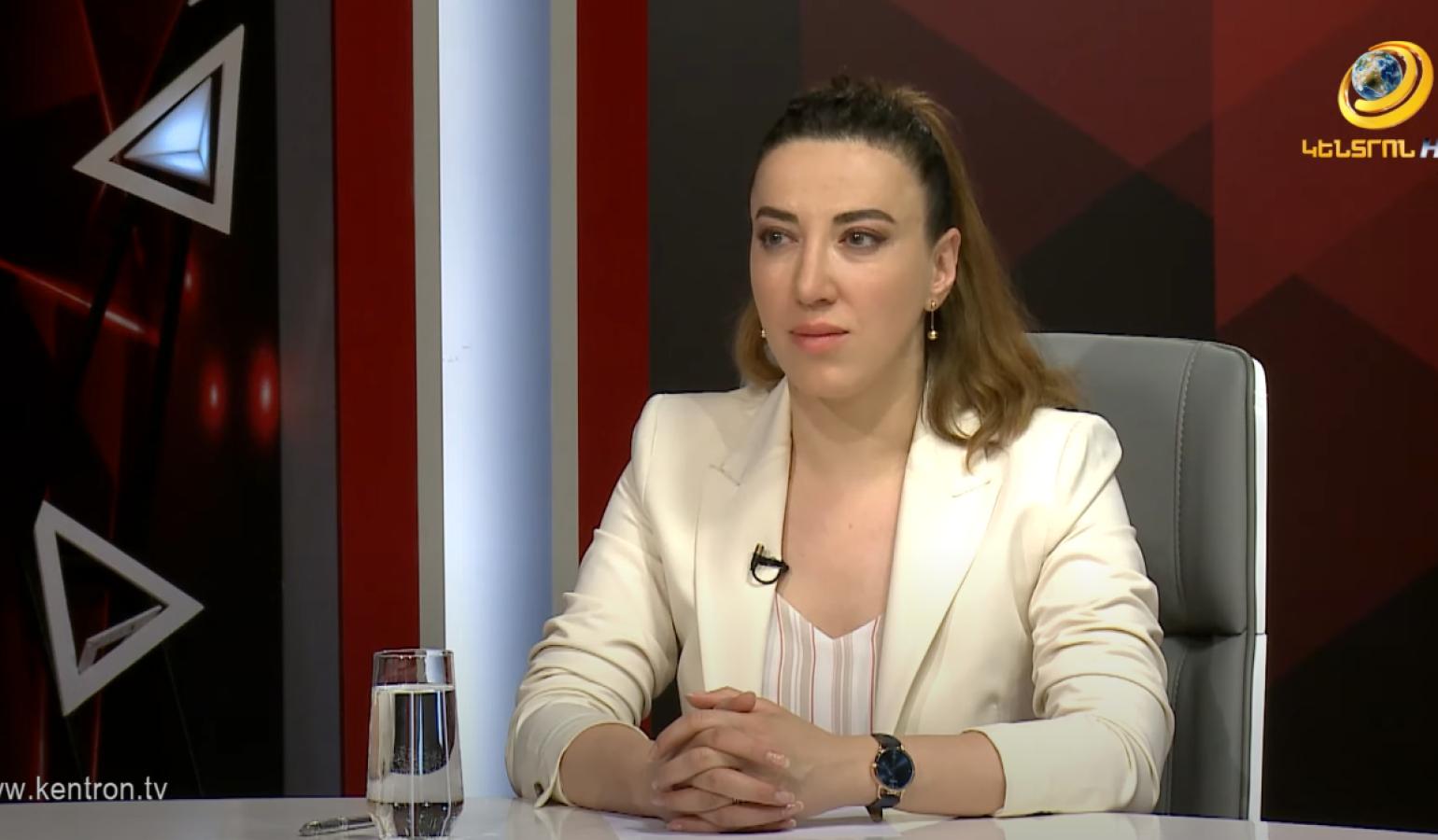
Siranush Sahakyan, director of the Center for International and Comparative Law and representative of the interests of Armenian prisoners of war at the European Court of Human Rights, addressed the unresolved humanitarian issues in the post-war period, particularly the return of Armenian prisoners of war and the clarification of the fate of the missing, on the "Agenda" program of "Kentron" Television.
Sahakyan noted that the issue of prisoners of war has turned into a political problem, heavily exploited at the interstate level. "If previously, parallel to the ongoing negotiations, small deals were taking place, such as the provision of maps of minefields, the extradition of Azerbaijani criminals, then currently the prospect of small, so-called commercial transactions has been exhausted. And the issue has become essentially dependent on the signing of a peace treaty, regarding which, yes, statements are being made that agreements have been reached, the parties are close to signing the document. However, there are no movements regarding the actual signing of that document, and I believe there are much deeper obstacles that even external partners do not address, and in such conditions, it is clear that the issue of the release of Armenian hostages remains unresolved, and similarly, the steps being taken to clarify the fate of the missing and forcibly disappeared remain unresolved. And the discussions have moved to international legal or quasi-legal instances, where they are being discussed, appeals are being addressed to Azerbaijan, but there is no actual visible result," Sahakyan stated.
Referring to the official number of Armenian prisoners of war held in Azerbaijan, Siranush Sahakyan said that according to their verified data, at least 80 prisoners of war have been subjected to enforced disappearance. According to Sahakyan, there are many other Armenians who were captured and subsequently forcibly disappeared, and their whereabouts or fate remain unknown. "We have missing persons dating back to 2020, we also have cases from the 1990s, and the phenomenon of disappearance was also present during the September 2023 aggression. Unlike forcibly disappeared prisoners of war, in this case, we do not know whether the person died on the battlefield, or laid down their arms and was captured by Azerbaijani servicemen; here, both the presumption of death and capture have equal probability."
During the interview, the possibility of Armenian prisoners of war held in Baku having international lawyers was also addressed. Sahakyan noted that Azerbaijani legislation places significant restrictions on the activities of foreign lawyers. According to her, international lawyers are often denied access to their clients. "According to my information, at the moment there are 3 international lawyers involved who are handling cases at the European Court of Human Rights and the UN human rights mechanisms; in the remaining cases, these individuals are represented either by the Government of the Republic of Armenia, or by domestic bar associations, or by domestic human rights defenders. In all cases concerning the 23 Armenians, there are legal proceedings, but it is not always the case that these proceedings are conducted by international lawyers."
Regarding the provision of state support to the families of prisoners of war, Sahakyan noted that there is a program for the provision of a fixed monthly sum, but there is a tendency to terminate this support as a result of certain initiatives, which is concerning. "There was a very simple approach here, that mainly the prisoners of war are the breadwinners of their families, and since they are far from their families, and by and large their return is the state's responsibility, which remains unresolved for the time being, it is clear that the state should have taken on this role to solve social problems. I am hopeful that it will remain an initiative, and no decisions will be made here that will lead to the deterioration of the social situation of these individuals who are in a severe psychological state."
During the interview, the issue of recalling applications from international instances was also touched upon. The human rights defender described the possible discussions on Armenia's withdrawal from international legal claims as devastating, emphasizing that legal struggle is the only way to record violations and crimes. According to her, withdrawing from legal processes would mean legitimizing Azerbaijani gains and abandoning the fight for justice. The human rights defender expressed hope that through the united efforts of the public, it will be possible to achieve positive developments and ensure the speedy release of Armenian prisoners of war.